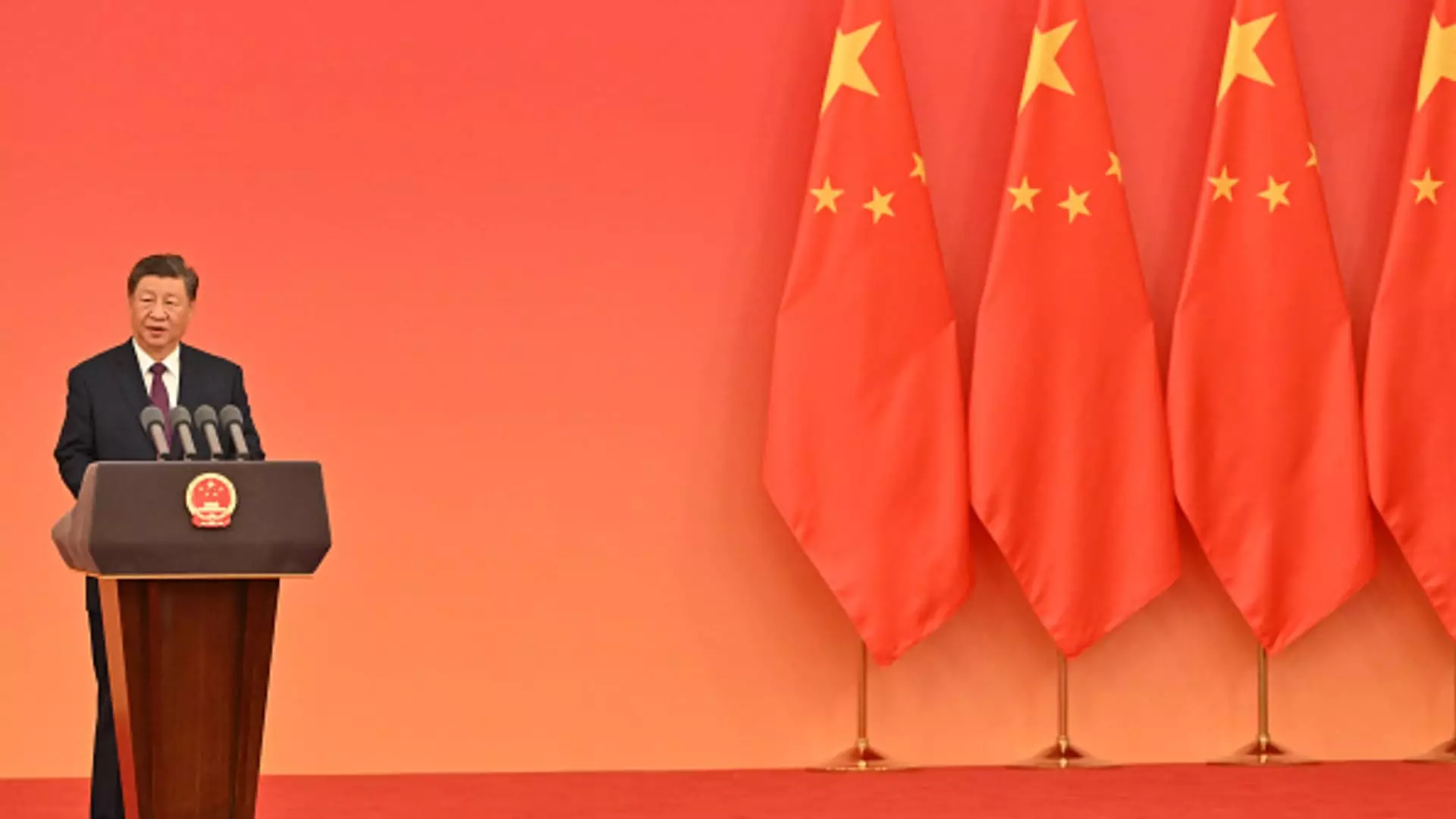On the backdrop of the 75th anniversary celebration of the People’s Republic of China (PRC), President Xi Jinping delivered a powerful message underscoring the resilience of the nation in the face of adversity. His speech, characterized by a firm stance against external pressures, particularly concerning the contentious issue of Taiwan, aimed to galvanize national unity and reaffirm the Communist Party’s leadership role. This article delves into the key themes of Xi’s address, examining the implications for both domestic and international contexts.
During his address, Xi Jinping acknowledged the inevitability of challenges that lie ahead for China, citing uncertainties and risks as constants on the nation’s journey. His statement that “no challenges can stop China’s progress” encapsulates a prevailing sentiment within the Chinese leadership — a dogged determination to propel the country toward its envisioned future, regardless of geopolitical tensions or economic hurdles. This proclamation serves not only as a rallying cry for domestic audiences but also as a means to project a robust image of strength and perseverance to external observers.
In this context, China’s growing economic and technological conflicts with Western nations, particularly the United States, loom large. Though Xi refrained from naming specific adversaries or disputes, his comments implicitly acknowledged the mounting pressure from tariffs, trade restrictions, and technological isolation strategies imposed by Western powers. The unspoken acknowledgment of these challenges reflects a strategic approach aimed at unifying the populace under the narrative of external threat, fostering a collective will to overcome adversity.
Central to Xi’s address was the theme of reunification with Taiwan, which he characterized as an “inevitable development of history.” This assertion reflects a long-held position within the Communist Party regarding Taiwan, which is viewed as a breakaway province rather than an independent entity. By emphasizing the need for unity under the banner of the Communist Party, Xi sought not only to reaffirm his government’s stance but also to quell rising sentiments of separatism within Taiwan.
However, the political strategies employed in the rhetoric surrounding Taiwan involve a delicate balancing act. While promoting the idea of economic and cultural cooperation, Xi’s firm opposition to separatist sentiments highlights the potential for escalating tensions between the two sides. This duality poses significant challenges, as any miscalculation could result in heightened cross-strait hostilities, drawing in external powers and further complicating an already tense geopolitical landscape.
Xi’s discourse extended beyond Taiwan, enveloping a broader narrative of national rejuvenation. He articulated a vision that includes Hong Kong and Macao as integral parts of “Greater China,” reinforcing the idea that the collective aspirations of the Chinese people are deeply interwoven. This narrative aligns with the Chinese leadership’s goals of enhancing regional stability and economic cooperation while affirming Beijing’s territorial claims.
The framing of “national rejuvenation” serves a critical role in Xi’s broader strategy of fostering a unified national identity. It acts as a unifying force that encourages solidarity among the Chinese populace while serving as a counter-narrative to external criticisms regarding governance and democratic values. This rhetoric resonates profoundly within the historical context of Chinese nationalism, particularly as it relates to past humiliations and the desire for a resurgent China on the global stage.
As Xi addressed the challenges facing the nation, he simultaneously highlighted the recent resurgence in Chinese markets, noting a recent uptick in mainland and Hong Kong stock indexes. This economic revival is crucial following months of governmental efforts to stabilize the real estate sector and stimulate growth through monetary policy adjustments.
Yet, while the People’s Bank of China has cut interest rates in a bid to enhance liquidity, the absence of substantial fiscal support from the Ministry of Finance remains a point of concern. The dichotomy between the ambitious rhetoric surrounding economic growth and the practical policies being implemented reflects the complexity of governance in a rapidly changing global economic environment.
Ultimately, Xi Jinping’s address signifies more than a mere celebration of the People’s Republic’s anniversary; it serves as a clarion call for unity in the face of challenges, a reaffirmation of a vision for reunification, and an emphasis on the need for economic resilience. As China navigates the intricacies of its domestic and international landscape, the themes articulated by Xi will likely continue to shape the narrative of a nation poised for growth amidst adversity. The course ahead is fraught with challenges, but the commitment to progress remains unwavering, supported by a populace bound by shared aspirations.

